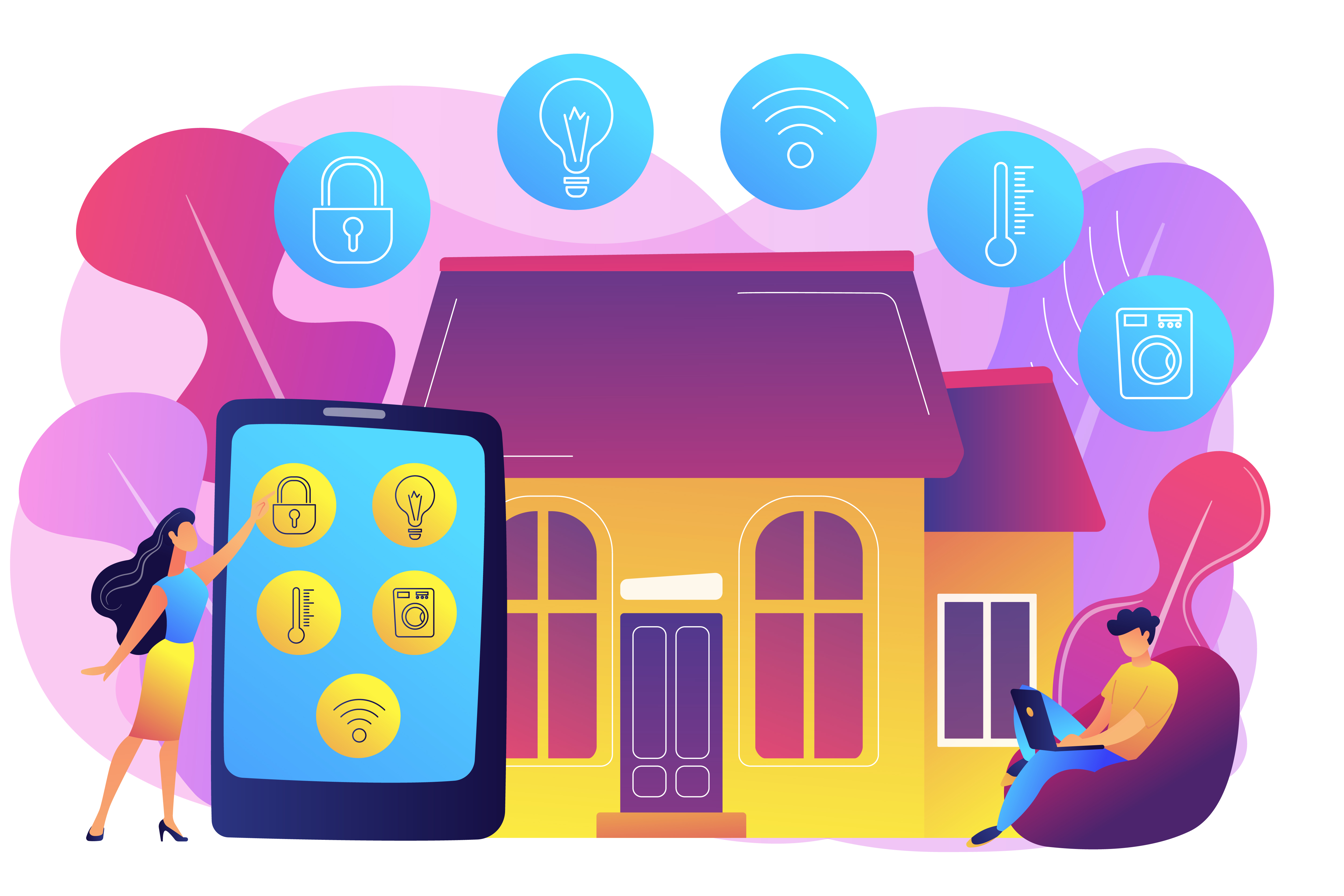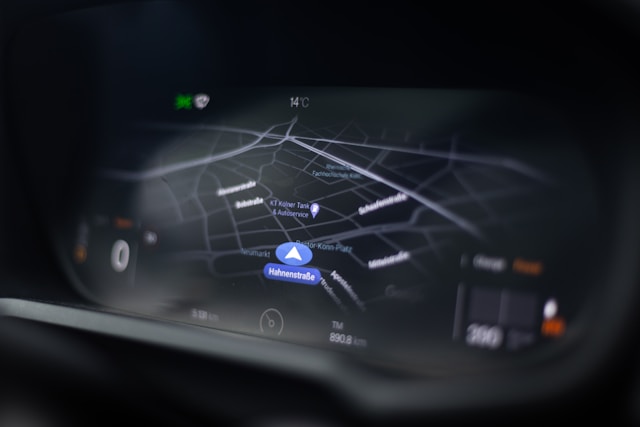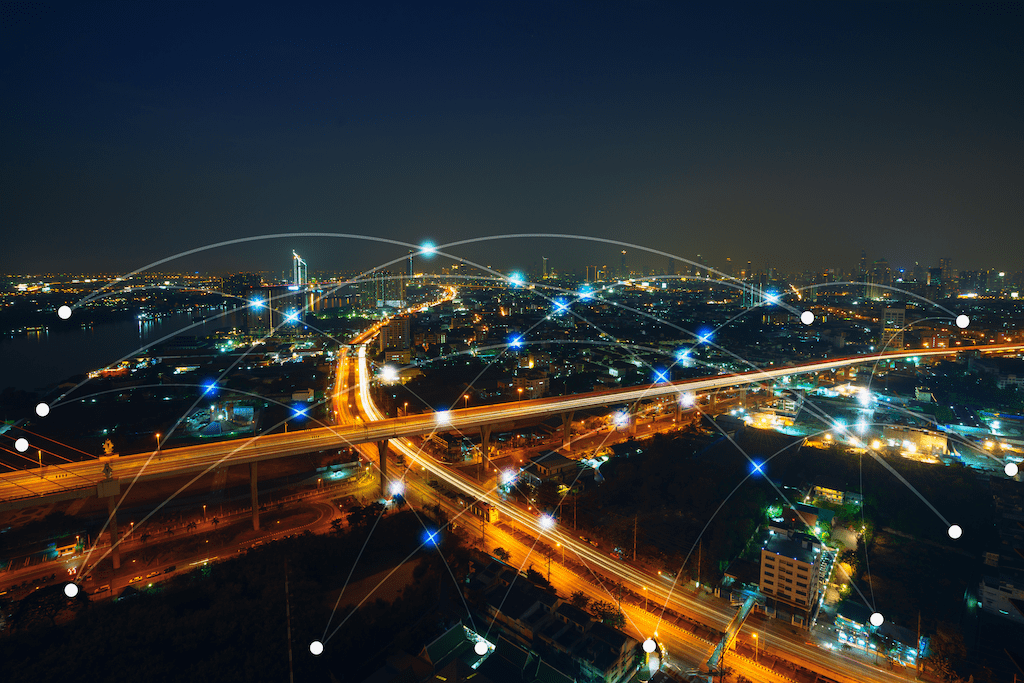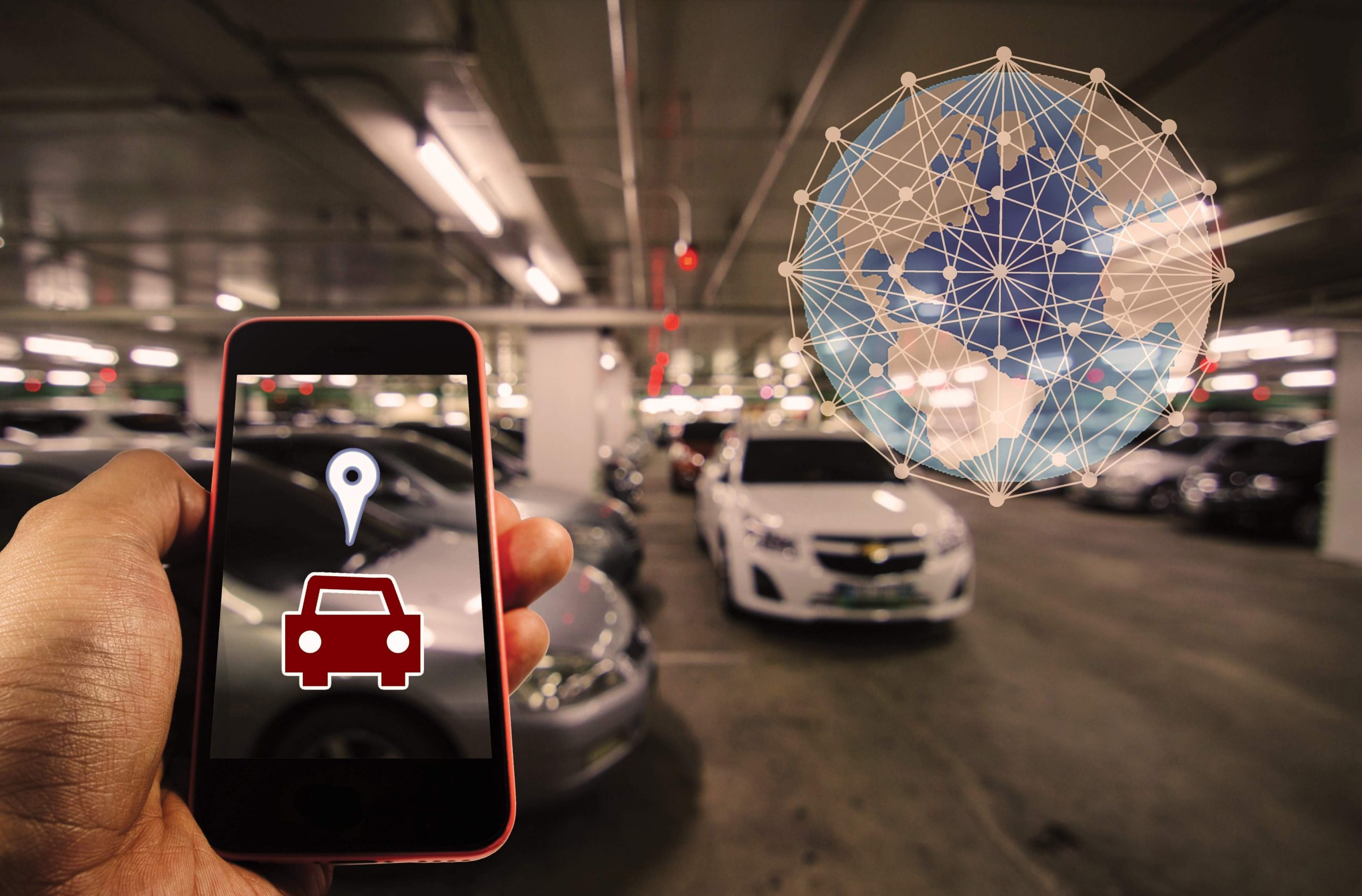How Advanced IoT Platforms Future-Proof Your Business?
-
May 29, 2022
-
8 min read
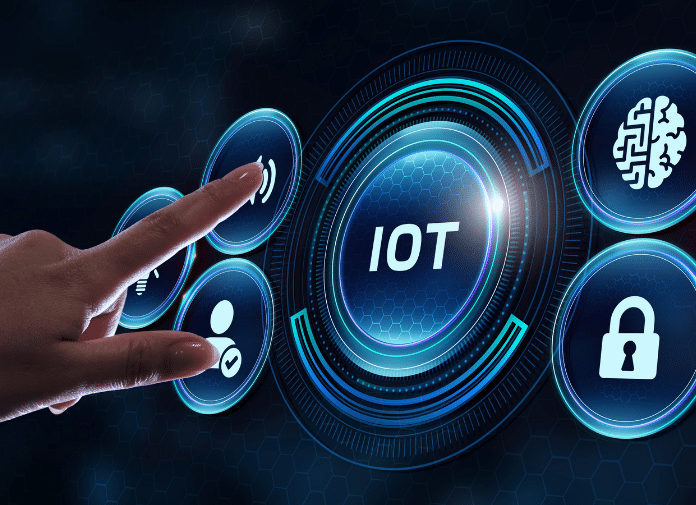
Imagine a world where your business operations are smoothly interconnected, where every device and process works in perfect harmony to not only meet but anticipate your needs. This isn’t a glimpse into a distant future—it’s the immediate advantage of advanced Internet of Things (IoT) platforms.
These technologies address a critical pain point for many businesses: the challenge of scaling operations while maintaining or improving efficiency. With the power of IoT platforms for business, automate processes, reduce downtime, and predict maintenance issues before they disrupt your workflow.
Step into the future where smart, connected solutions transform your business operations, so that you remain competitive and resilient in a fast-paced market.
What is an IoT Platform?
An IoT platform acts as a crucial middleware in the Internet of Things ecosystem. It connects the hardware, however diverse, to the user-facing applications, and allows data to flow securely between devices and the cloud. These platforms provide the essential infrastructure to collect, store, and analyse data from connected devices.
With built-in tools for machine learning and data analytics, IoT platforms enable businesses to extract valuable insights from vast amounts of data. By automating processes, these platforms boost operational efficiency and decision-making. They are the backbone that supports smart applications and services, crucial for businesses who want to leverage IoT solutions for competitive advantage.
Key Uses of IoT Platforms Across Various Industries
Across various sectors, the IoT platforms are transforming how companies operate to boost efficiency, and create new opportunities for growth.
1. Manufacturing
In manufacturing, IoT platforms simplify production lines and improve supply chain logistics. They enable predictive maintenance, and minimise downtime by alerting about potential machine failures before they occur. Real-time monitoring of equipment and processes also allows for immediate adjustments, optimising performance and product quality.
2. Healthcare
IoT platforms transform patient care by facilitating remote monitoring and telemedicine. They support wearable technologies that track patient health metrics in real time. Also, IoT solutions ensure the maintenance of critical healthcare equipment.
3. Retail
In retail, IoT platforms enhance customer experiences through personalised interactions and optimised inventory management. Smart shelves with IoT sensors can track stock levels and gather data on customer preferences, helping retailers tailor their offerings and manage supplies more efficiently.
4. Transportation and Logistics
IoT platforms greatly improve logistics operations by providing real-time tracking of goods and vehicles. They optimise routes through traffic and weather data integration, reduce fuel consumption, and enhance delivery times.
5. Energy
In the energy sector, IoT platforms enable smarter management of resources. They help with the monitoring and control of energy consumption, support predictive maintenance of infrastructure, and optimise the distribution of electricity based on real-time demand data.
Types of IoT Platforms: Choosing the Right Solution for Your Business
Selecting the right IoT platform is crucial for maximising the benefits of the Internet of Things within your organisation. Here are the major types of IoT platforms, each catering to different business needs:
- Device Management Platforms: These platforms focus on managing and monitoring IoT devices They enable firmware updates, security management, and troubleshooting.
- Key Features: Remote device control, status monitoring, firmware updates.
- Connectivity Management Platforms: Essential for businesses that need to manage large-scale device networks. These platforms provide tools to handle the setup, maintenance, and management of connections between devices and the cloud.
- Key Features: Network performance monitoring, connection status alerts, bandwidth management.
- Advanced Analytics Platforms: They transform raw data into actionable insights using complex algorithms and machine learning. Ideal for businesses that need to perform predictive maintenance, optimise operations, and make data-driven decisions.
- Key Features: Data visualisation, predictive analytics, real-time data processing.
- Application Enablement Platforms: These platforms help developers create and deploy IoT applications with less coding effort. They offer pre-built templates and integration tools that accelerate the development of applications.
- Key Features: Rapid application development, integration APIs, customisable UI templates.
Benefits of IoT Platforms
IoT platforms for business offer numerous benefits that can transform operational dynamics and foster significant growth. Here are the core advantages:
- Higher Operational Efficiency: IoT platforms automate routine tasks and optimise business operations. They enable real-time monitoring and control of devices, and reduce downtime and maintenance costs. Businesses can achieve higher productivity with fewer resources.
- Data Utilisation: By collecting and analysing data from various sources, IoT platforms turn information into insights. Businesses use these insights to predict trends, improve decision-making, and innovate new products or services.
- Improved Customer Experience: IoT platforms enable businesses to understand and respond to customer needs more effectively. Whether it is through personalised marketing, enhanced customer support, or innovative product offerings, IoT boosts client engagement and satisfaction.
- Scalability: As business needs grow, IoT platforms can easily scale to manage increased data volume or additional devices without significant new investments in infrastructure.
- Security: With robust security protocols, IoT platforms for business safeguard sensitive data and adhere to compliance with regulatory standards. They provide end-to-end encryption and continuous monitoring to prevent unauthorised access and data breaches.
- Cost Savings: By optimising resource usage and improving operational efficiency, IoT platforms reduce overall costs. They minimise waste, streamline supply chains, and decrease energy expenses, contributing to a healthier bottom line.
Incorporating different IoT communication models enhances these platforms’ efficiency, broadening the scope of device interoperability and data exchange.
How IoT Platforms Future-Proof Your Business?
Here is how IoT prepares your enterprise for the future:
- Scalability: IoT platforms support scalable solutions that grow with your business, handling increasing data volumes and more connected devices effortlessly.
- Flexibility: They adapt to new technologies and business models, allowing companies to easily integrate emerging technologies without overhauling existing infrastructure.
- Innovation: IoT platforms foster innovation by providing tools to develop new services and improve existing products, keeping businesses competitive.
- Risk Management: By enabling predictive analytics, IoT platforms help businesses anticipate failures and mitigate risks in real-time.
- Regulatory Compliance: They ensure that businesses stay compliant with evolving industry regulations by providing up-to-date tracking and reporting features.
Examples of How Advanced IoT Platforms Can Be Used to Future-Proof Your Business
IoT platforms for business not only adapt to current technological trends but also pave the way for future advancements. Here are five real-life examples of how businesses use IoT platforms to secure their future:
1. John Deere in Agriculture
John Deere has integrated IoT platforms into their agricultural equipment, such as tractors and combines. These IoT-enabled machines collect data on soil conditions, crop health, and weather in real-time, enabling precision agriculture.
Farmers can optimise planting schedules, irrigation, and harvesting, which increases yields and reduces resource waste.
2. Rolls-Royce in Aerospace
Rolls-Royce uses IoT platforms to implement predictive maintenance on their aircraft engines. Sensors collect data from engines in flight and analyse it to predict failures before they occur.
This not only minimises downtime but also enhances safety and reduces maintenance costs, and keeps airline operations smooth and future-proof against unforeseen mechanical failures.
3. Bosch in Manufacturing
Bosch has transformed its manufacturing processes with IoT platforms, integrating sensors and software to create a fully connected factory environment. This setup allows for real-time monitoring and adjustment of manufacturing operations, improving efficiency and reducing waste.
Bosch’s factories can quickly adapt to new production needs or changes in technology, keeping them ahead in a competitive market.
4. Smart City Initiatives in Barcelona
Barcelona has employed IoT solutions for smart city management to enhance urban living and infrastructure management. The city has implemented systems for smart lighting, waste management, and water conservation, all managed via IoT platforms.
These initiatives help the city efficiently manage resources, reduce costs, and improve residents’ quality of life, making the urban infrastructure resilient to population growth and environmental challenges.
5. Mount Sinai Health System in Healthcare
The Mount Sinai Health System in New York uses IoT platforms to monitor patients with chronic diseases remotely. Patients wear devices that send real-time health data to their doctors, allowing for immediate adjustments to treatment plans.
This improves patient outcomes and even reduces hospital visits and associated healthcare costs, making the health system more effective and future-proof against increasing healthcare demands.
Choosing Airtel IoT Connectivity Solutions for your Business
As your business seeks to leverage the benefits of advanced IoT platforms, choosing Airtel IoT Connectivity Solutions becomes a strategic decision to enhance operational resilience and future-proof your operations.
Airtel provides high-end connectivity that supports the deployment of IoT across various sectors, ensuring seamless data flow and efficient device management. By utilising Airtel’s IoT solutions, you can optimise manufacturing processes, enhance healthcare monitoring, streamline retail operations, and improve logistics with real-time tracking.
This integration will not only address the critical pain points of scaling and efficiency discussed earlier but also propel your business forward in a competitive digital economy.
IoT Platforms: Pioneering Progress in Business
In an era dominated by rapid technological advancements, equipping your business with IoT platforms is no longer an option but a necessity. These platforms provide the backbone for innovation, enabling businesses to stay resilient, agile, and ahead of the curve.
To maximise these benefits, incorporating Airtel IoT Connectivity Solutions offers reliable, scalable, and secure infrastructure essential for leveraging the transformative power of IoT platforms for business. Embrace Airtel’s solutions to not just compete but lead in the evolving digital marketplace.
 Share
Share


